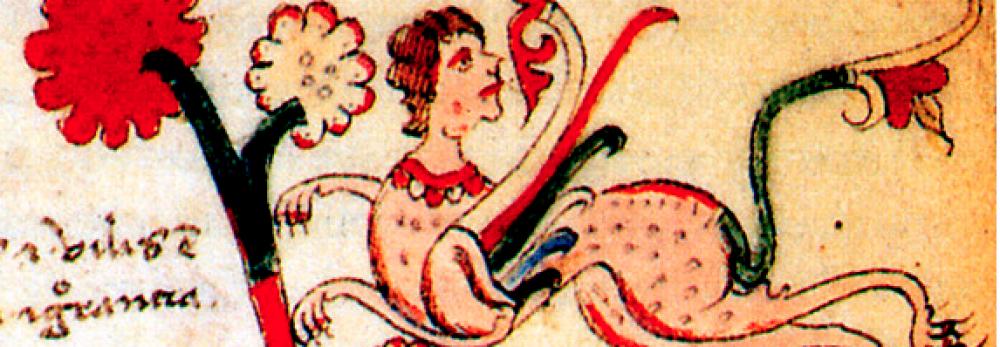FYS (First Year Seminar) Creature
Our stories about animals have always been central to the ways we understand our own “humanness.” The current crises in global climate change and habitat loss, scientific discoveries surrounding animal cognition, and the exploding interdisciplinary field of animal studies, have created a framework for an acute engagement with human-animal relationships in contemporary performance and art. This course will investigate how humans are framing and re-orienting their understanding of species categories in contemporary theatrical and artistic practices.
ENG 135 Reading Animals
Animals are our companions, our scientific “models,” our evolutionary kin, our food, our genetic playthings, our fashion statements. We experience animals at home, in zoos, in the grocery store, in labs, in the “wild” and throughout the spectrum of popular media such as television and film. This course will investigate how animals are represented in language and the value systems that underwrite those representations. Among our chief considerations will be what our descriptions of animals say about us, the intersections of gender, race, and animality, and the question of evolving ethical postures toward nonhuman animals.
ENG 205 Introduction to English Studies
This seminar is designed to initiate you into the practices of literary appreciation, analysis, and interpretation, practices vital to your success as an English Major or Minor. We will be interested in what makes texts “literary,” and in how we analyze those texts from a scholarly perspective. We will discuss the relationship between literary texts and culture, and we will approach certain texts from multiple angles as we explore critical theory and the way it “opens up” certain elements of literature. This course makes use of short stories, poetry, novels, and graphic novels.
ENG 211 English Literature II
The survey of English Literature is an introduction to the literatures of the past for English majors, or other students who want to learn the discipline of studying past writers as an English major would. As the concept of survey suggests, we will undertake a broad examination of multiple texts and authors from roughly the last two hundred years, rather than studying them in great detail individually.
Throughout the course, we will pay attention to a number of issues, including the following: Romanticism’s redefinition of the self and the dialectic between the human and the natural world; changes in religious orthodoxies that result from various cultural and scientific developments in the Victorian era; the problem of gender in modern England and the formal transformations that literature undergoes at the turn of the twentieth century. The course assumes that you have some previous experience in literary interpretation and will develop your ability to engage with literary criticism.
ENG 271 Dancing Cultures
What is dance? What constitutes performance? In this course we explore how the body, identity and culture are represented through aesthetic traditions, cultural contexts and texts from many genres in order to create social and cultural meanings. We examine how performance and dance are connected to questions of gender, ecology, and national identity. Students will consider embodied knowledge practices as they are represented textually in memoirs, essays, films, graphic novels, poems, and novels. The course is for all students interested in movement studies and in the cultural and textual exploration of dance practices.
ENG 342 Modern British Literature
This course investigates various literary and cultural “crises” during the British modernist period. The fragmentation of traditional narrative and poetic style is considered a hallmark of modernist literature. We will contextualize these changes in literary and linguistic form by asking how they are linked to the social and political crises of the time period. Throughout the semester, we will discuss how science and technology, evolutionary theory, the New Woman, and colonialism all challenge traditional notions of what it means to be human at the turn of the twentieth century. This, in turn, will help us understand how and why literature itself undergoes such radical changes in form during the modernist period.
ENG 365 Seminar in Literary Criticism
English 365 aims to introduce students to influential models of theory and criticism as applied to the analysis and interpretation of literature. Throughout roughly the past century, scholars and critics have developed unique intellectual frameworks that consider literature and literary interpretation from a variety of angles. In this course, we will be studying mostly “classic” theoretical schools such as poststructuralism, psychoanalytic theory, feminist and race theory. We will also examine more recently emergent trends in queer theory, and very current work in posthumanism and bio-poetics. Our explorations will be additionally engaged with literary (and film) texts.
“Theory,” like philosophy, is notoriously challenging. At the same time, its intellectual lessons can be incredibly energizing. Please note that a certain level of frustration is part and parcel of learning to engage with complex theoretical texts and paradigms. In this course especially, we must value difficulty, disruption, and a certain amount of cognitive struggle. The rewards will result in eye-opening ways to think, read, and write.
